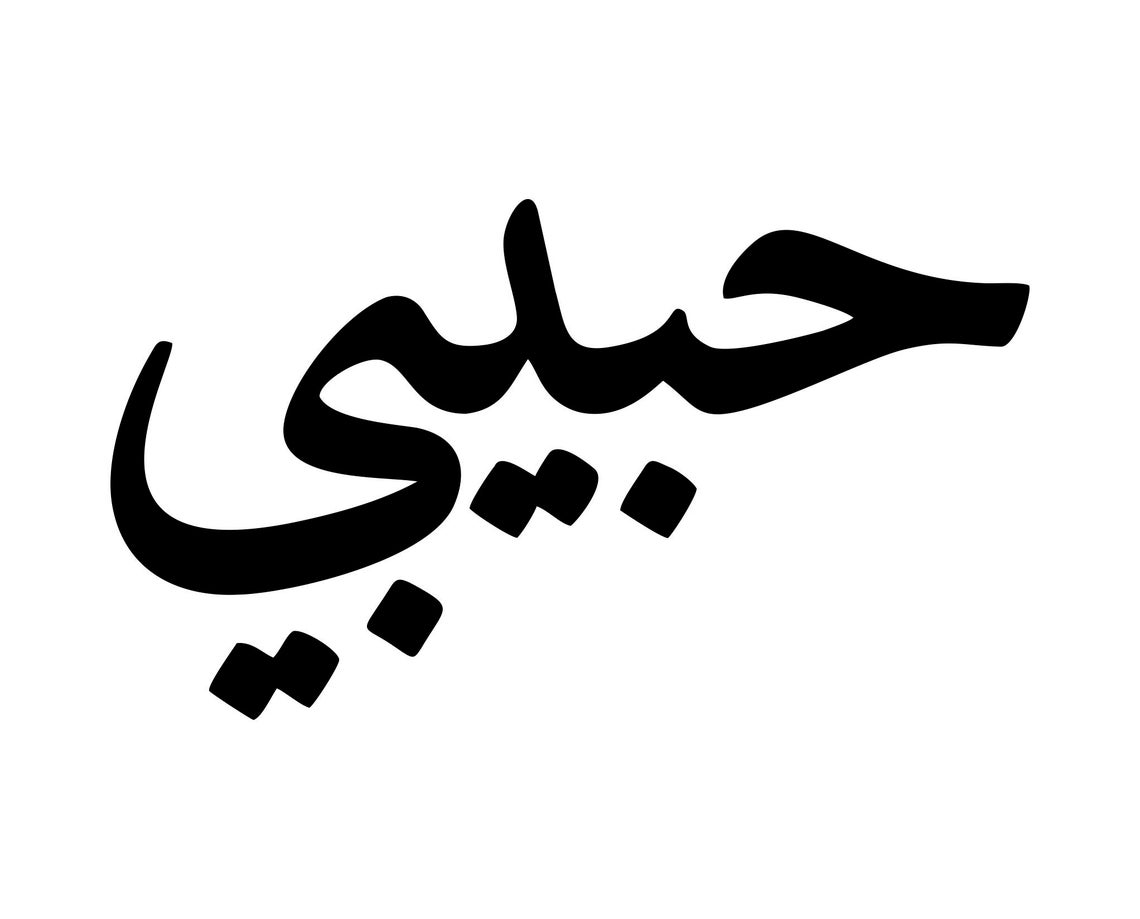Habibi Meaning - Unpacking A Heartfelt Expression
Sometimes, a single word can carry so much feeling, a whole world of warmth and connection. It's almost like a little secret handshake between people, a special way to show you care. We're talking about "habibi," a word that has made its way into many conversations, often leaving folks wondering just what it truly means. This simple Arabic term, you see, holds a really deep and lovely sense of affection, something that speaks directly to the heart. It's a phrase that brings people closer, creating a sense of closeness whether you're chatting with a pal, a family member, or someone you feel a romantic spark with.
You might have heard "habibi" pop up in different places, perhaps in a song or maybe just in casual conversation. It’s a word that crosses cultural lines, too it's almost. People from all sorts of backgrounds find themselves drawn to its gentle sound and the kind feeling it carries. It’s not just a foreign word; it feels like a universal way to express fondness. This piece will take a closer look at what "habibi" actually stands for, exploring its different uses and how it helps people share warmth and connection.
As we get to know this word a bit better, you'll see how it acts as a sweet expression of care, really. It’s a term of endearment, a way to show someone they are cherished. We'll explore how this word fits into daily chats, what it means when someone calls you "habibi," and even touch on other related phrases that share a similar spirit of warmth. It's about understanding the feeling behind the sounds, you know, the way words can build bridges between people.
Table of Contents
- What is the Core Habibi Meaning?
- How is Habibi Used in Everyday Talk?
- Beyond Just Words - The Feeling of Habibi Meaning
- Understanding Other Phrases - Like Yalla Habibi Meaning
- What About "Masha Allah" and its Place?
- Why Does Language Level Matter for Habibi Meaning?
- Is Habibi a Word for Everyone?
- Different Ways People See Habibi Meaning
What is the Core Habibi Meaning?
The word "habibi" comes from the Arabic language, and it's basically a way of saying "my beloved" or "my dear" in English. It's a term that people use to show affection, kind of like calling someone "sweetheart" or "honey" in English, but it has its own special flavor. This word is really often used as a term of endearment, which means it's a way to express a warm, loving feeling towards someone. It's not just a simple translation, you see, but a word packed with a lot of emotional weight. It's used to tell someone that they are important to you, that you hold them close to your heart, in a way.
When someone says "habibi," they are, in a sense, giving you a verbal hug, really. It's a way to acknowledge a special bond. The word itself carries a sense of closeness and personal connection. It's not just for romantic partners, either; it’s a versatile little word that can be used among friends who are very close, or even with family members. So, it's a word that helps build and keep strong relationships, showing care and kindness, you know. The "habibi meaning" is all about that deep, personal connection.
It's interesting how a single word can hold so much meaning, basically. It's a simple sound, yet it communicates a profound sense of warmth. The feeling it brings across is one of cherishing, of holding someone in high regard. When you hear it, or say it, there's this immediate sense of familiarity and fondness that comes with it. It's a rather gentle way to express that someone is valued, which is pretty nice.
How is Habibi Used in Everyday Talk?
People use "habibi" in lots of different daily situations, showing its wide appeal. It's not just a word for formal settings; it pops up in casual chats all the time. For example, you might hear someone say, "Thank you for helping me, habibi, I really appreciate it." This shows that it's a way to express gratitude while also adding a personal touch of warmth, you know. It makes the thanks feel more heartfelt, more personal. It's like saying, "Thanks, my dear friend," but with a bit more cultural flavor, perhaps.
Another common way you might hear it is when someone asks, "How are you today, habibi?" Here, it serves as a friendly greeting, adding a layer of affection to a simple question about well-being. It turns a routine inquiry into something more personal and caring. It's a way to show that you're not just asking out of politeness, but because you genuinely care about the person, in a way. The "habibi meaning" here is about friendly concern.
The word can also be used to get someone's attention in a gentle, kind manner. It's a soft way to call out to someone you know, like saying "hey, pal" but with a much softer, more affectionate tone. It sets a friendly mood for the conversation that follows. This flexibility is what makes "habibi" so widely used and loved, honestly. It just fits into so many parts of daily communication, always bringing a bit of warmth with it.
Beyond Just Words - The Feeling of Habibi Meaning
The "habibi meaning" goes deeper than just its literal translation; it's about the feeling it creates. It's a word that helps people feel closer, fostering a sense of community and personal connection. When someone uses "habibi," it often signals that there's a bond of affection, whether it's a deep friendship, a family tie, or a romantic link. It’s a way of saying, "You matter to me," without needing a long explanation, you know.
This term of endearment is quite powerful because it communicates warmth and care directly. It can soften a request, add sincerity to a thank you, or simply make a greeting feel more personal. It's a word that helps build emotional bridges between people, making interactions feel more human and connected. It’s a very simple word, but its impact on personal relationships is quite significant, basically.
Think about how words can make you feel. Some words are just informative, while others carry a feeling with them. "Habibi" definitely falls into the latter group. It's a word that wraps around you like a warm blanket, giving a sense of comfort and acceptance. It's a rather lovely way to express affection, whether it's for a close friend, a relative, or someone you love in a romantic way. The "habibi meaning" is really about spreading that good, warm feeling.
Understanding Other Phrases - Like Yalla Habibi Meaning
Sometimes, "habibi" comes as part of other phrases, and one that many people recognize is "Yalla Habibi." This phrase gained a lot of popularity, partly because of a song by the Canadian artist Karl Wolf. His song, also called "Yalla Habibi," mixes pop music with Arabic sounds, blending Western and Middle Eastern influences, which is pretty cool. The song helped introduce this phrase to a wider audience, showing how music can bring different cultures together, you know.
So, what does "Yalla" mean in this phrase? "Yalla" on its own means "come on" or "let's go." It's a common, everyday word used to hurry someone along or to suggest starting something. So, when you put "Yalla" and "Habibi" together, "Yalla Habibi" often translates to something like "Come on, my dear" or "Let's go, my love." It's a way to add a friendly, affectionate push to an action, basically.
It's important to know that "Ya" is often used as a calling sound, kind of like "yo" in English, but it's not part of the word "habibi" itself. So, "Ya habibi" means "my loved one" or "my darling," with the "ya" just being a way to address someone directly. It’s a common way to get someone's attention while also showing affection. The "habibi meaning" in these combined phrases always keeps its core sense of endearment, even when paired with other words.
What About "Masha Allah" and its Place?
While we're talking about Arabic phrases that carry a lot of meaning, it's worth touching on "Masha Allah." This phrase translates to "Allah has willed." It's used in various situations, often during times of joy or when expressing admiration for something good that has happened, you know. For example, if someone says, "I just passed my driver's test," a common response might be "Masha Allah." It's a way of acknowledging that good things happen through divine will, and it expresses a sense of blessing or good fortune.
This phrase, while not directly tied to the "habibi meaning," shows how Arabic expressions often carry deep cultural and spiritual significance. It's about recognizing blessings and expressing a sense of gratitude or wonder. It adds a layer of depth to everyday conversations, reminding people of a higher power or simply expressing a sense of awe at something good. It's a very common phrase, used quite often in many Arabic-speaking communities.
The "My text" also mentions a general idea about success, saying that "Success isn't just about winning—it's about vision, patience, and playing the long game." This little piece of wisdom, though separate from the specific language terms, fits into the broader idea of how people communicate values and thoughts. It shows that even simple phrases can carry profound messages about life and how we approach things, basically. It's a reminder that words do more than just name things; they can inspire, too.
Why Does Language Level Matter for Habibi Meaning?
When you're trying to learn a new word like "habibi," or any new language term, really, it helps a lot to know about language levels. The idea of a language level symbol is that it shows how good a person is at speaking or understanding different languages. This is pretty useful because setting your language level helps other people give you answers that aren't too complex or too simple. It makes communication smoother, you know.
For example, if you're asking about the "habibi meaning," and you've set your language level to a beginner, someone explaining it might use simpler words and shorter sentences. They wouldn't use a lot of jargon or really complicated grammar. This makes it much easier for you to grasp the meaning without feeling overwhelmed. It's about making sure the information fits your current ability to understand, which is very helpful.
This concept applies to understanding cultural terms like "habibi" too. If you're just starting to learn about Arabic culture or its language, a straightforward explanation of "habibi meaning" is much more useful than a highly academic one. It ensures that the core message gets across without any unnecessary confusion. So, knowing your language level, or the level of the person you're talking to, can make a big difference in how well ideas are shared, honestly.
Is Habibi a Word for Everyone?
"Habibi" is indeed an Arabic word, and it's definitely a term of endearment used to show affection toward someone. It means "my beloved" or "my dear." It's pretty clear that it's not a Tagalog word, for instance, as some people might wonder. Its origins are firmly in the Arabic language, and its use is deeply rooted in Arabic-speaking cultures. So, while it might be heard in many places, its home is Arabic, basically.
The word itself is quite versatile in who it can be directed at. It can be used for a friend, a family member, or a romantic partner. This shows that the "habibi meaning" isn't limited to just one type of relationship; it's broad enough to cover many forms of affection. It's about expressing a general sense of fondness and care, which is pretty universal, you know.
Interestingly, "habibi" is specifically for males. If you're talking to a female, the form changes slightly to "habibti." Both forms mean "my beloved," but they are gender-specific. This is a common feature in many languages where words change based on the gender of the person being addressed. So, it's not just a single word, but a pair of words that show affection while also respecting grammatical rules, which is rather neat.
Different Ways People See Habibi Meaning
It's interesting how different people interpret or explain the "habibi meaning," showing its flexibility and wide use. For some, it's simply "my love" or "my dear." Others might explain it as "my beloved one" or even "my darling." These are all very similar, pointing to the core idea of affection and closeness. It's like different shades of the same warm color, really.
Some explanations even go a bit further, adding practical advice or other related phrases. For example, some might say "you are welcome keep on touch" or "de rien welcom," linking the term of endearment to a sense of hospitality and continued connection. This shows that the word isn't just a standalone term but often comes with an implied sense of warmth and openness, you know. It's part of a bigger picture of friendly interaction.
You might also hear people relate it to other languages, like "mon amour" or "mon chéri" from French, which also mean "my love" or "my dear." These comparisons help people from different language backgrounds grasp the feeling behind "habibi." It's a way of building bridges between cultures, showing that while words might sound different, the feelings they express can be very similar. The "habibi meaning" is, in a way, a universal feeling wrapped in an Arabic word.
This exploration of "habibi meaning" has shown us that it's an Arabic term that means "my beloved" or "my dear," used as a term of endearment for friends, family, and romantic partners. We've seen how it appears in everyday talk, adds a warm feeling to conversations, and even features in popular culture, like the song "Yalla Habibi." We also touched on related phrases such as "Masha Allah" and the importance of language levels for clear communication. The word, whether "habibi" for males or "habibti" for females, consistently conveys affection and personal connection, making it a truly heartfelt expression.

Habibi my Love in Arabic Downloadable SVG File for Use on Stationery

Habibi - Song Download from Habibi @ JioSaavn

Habibi Habibti: Key Differences, Pros Cons, Similarities , 46% OFF